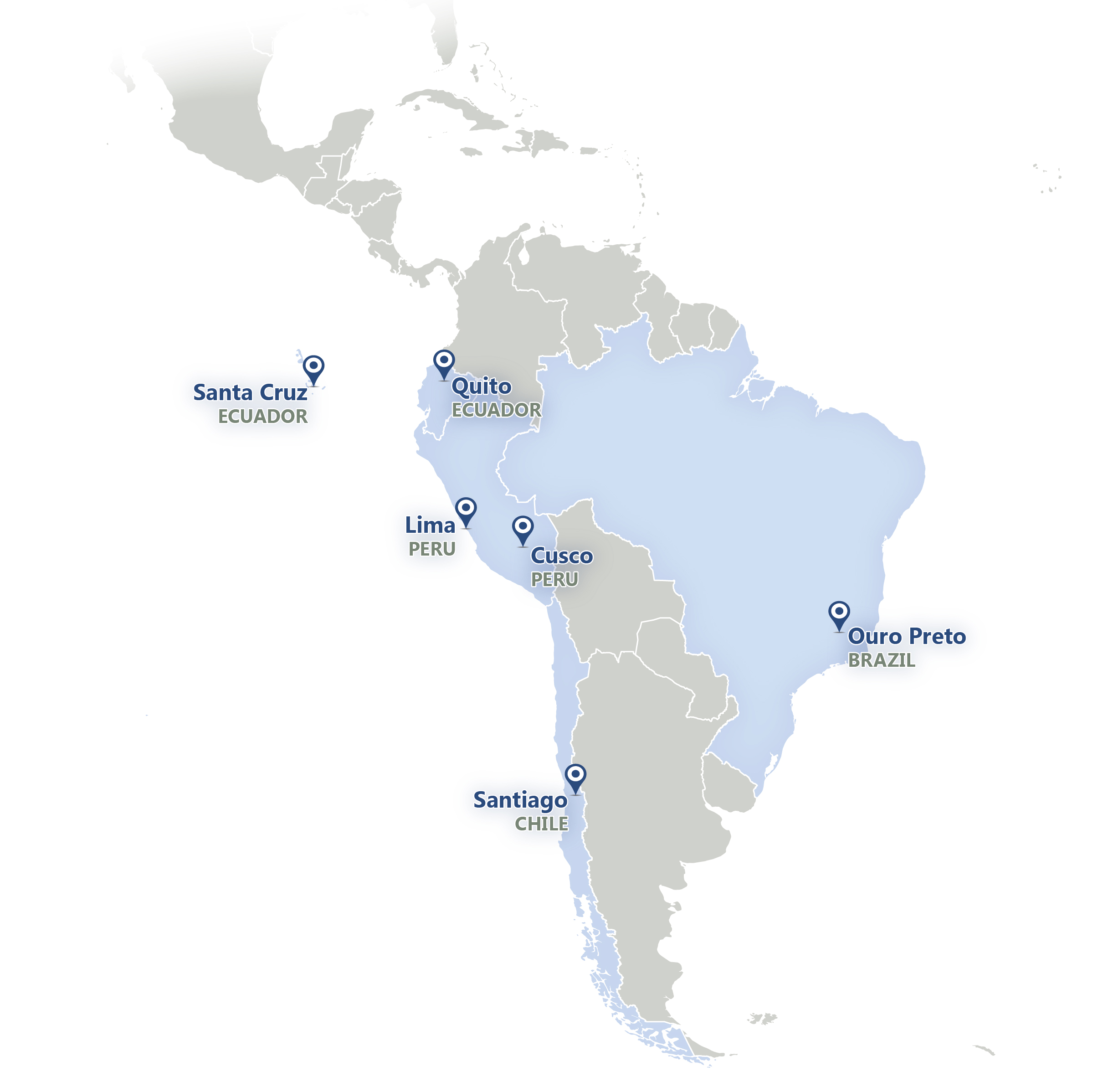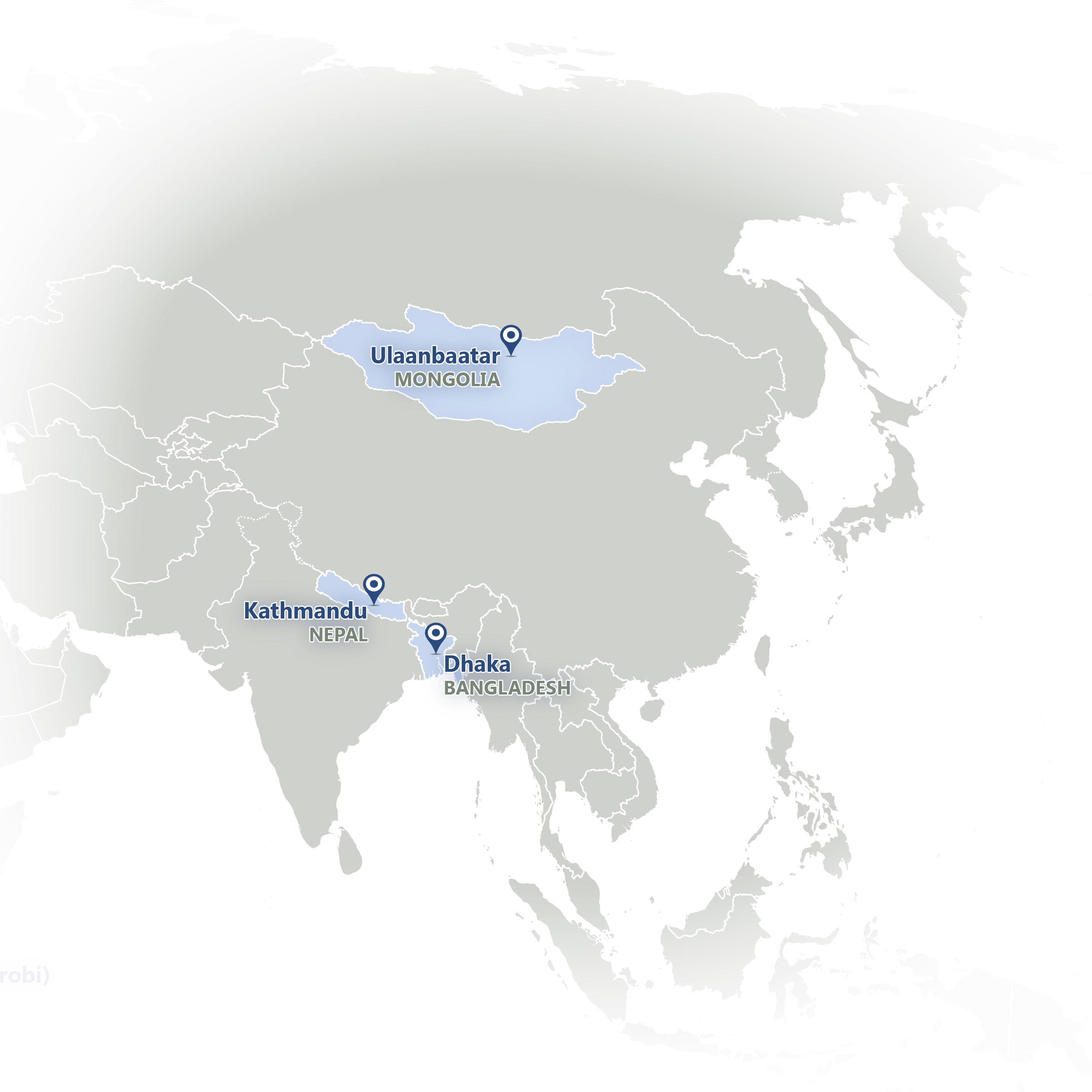Cities’ COVID Mitigation Mapping
The COVID-19 pandemic has rapidly spread around the world affecting public health and having cascading impacts on nearly every aspect of human life. Challenges from COVID-19 extend far beyond the illness, to include disruption of the global economy and local socio-economic relationships. The COVID-19 pandemic will continue to challenge vulnerable populations and communities long after the infection numbers peak. Many vulnerable populations around the world are experiencing a new complexity the virus is bringing to existing challenges such as poverty, food insecurity, obstacles to social, economic, and labor mobility, and access to education. Understanding these second-order impacts will help officials as well as civil society organizations mitigate negative effects and strengthen responses to address growing economic, health, and education needs. The Cities’ COVID Mitigation Mapping program (C2M2) builds on global networks of geospatial experts to analyze second-order impacts of COVID-19. The goal of this program is to increase the capacity to understand the distribution and gaps in resources available to vulnerable populations in urban communities. This program has three regional hubs in Africa, Asia, and Latin America, where select local organizations, with regional geospatial and community development expertise, identify and work with various local project partners to develop and guide C2M2 projects in each region. C2M2 projects build local capacity to utilize open data and geospatial technologies, strengthen international partnerships, and create new data and analyses to inform data-driven decision making for planning to mitigate COVID-19 second-order impacts. Project partners will focus on key themes: food security, informal economy, tourism, health, and mobility to address second-order impacts of COVID-19.
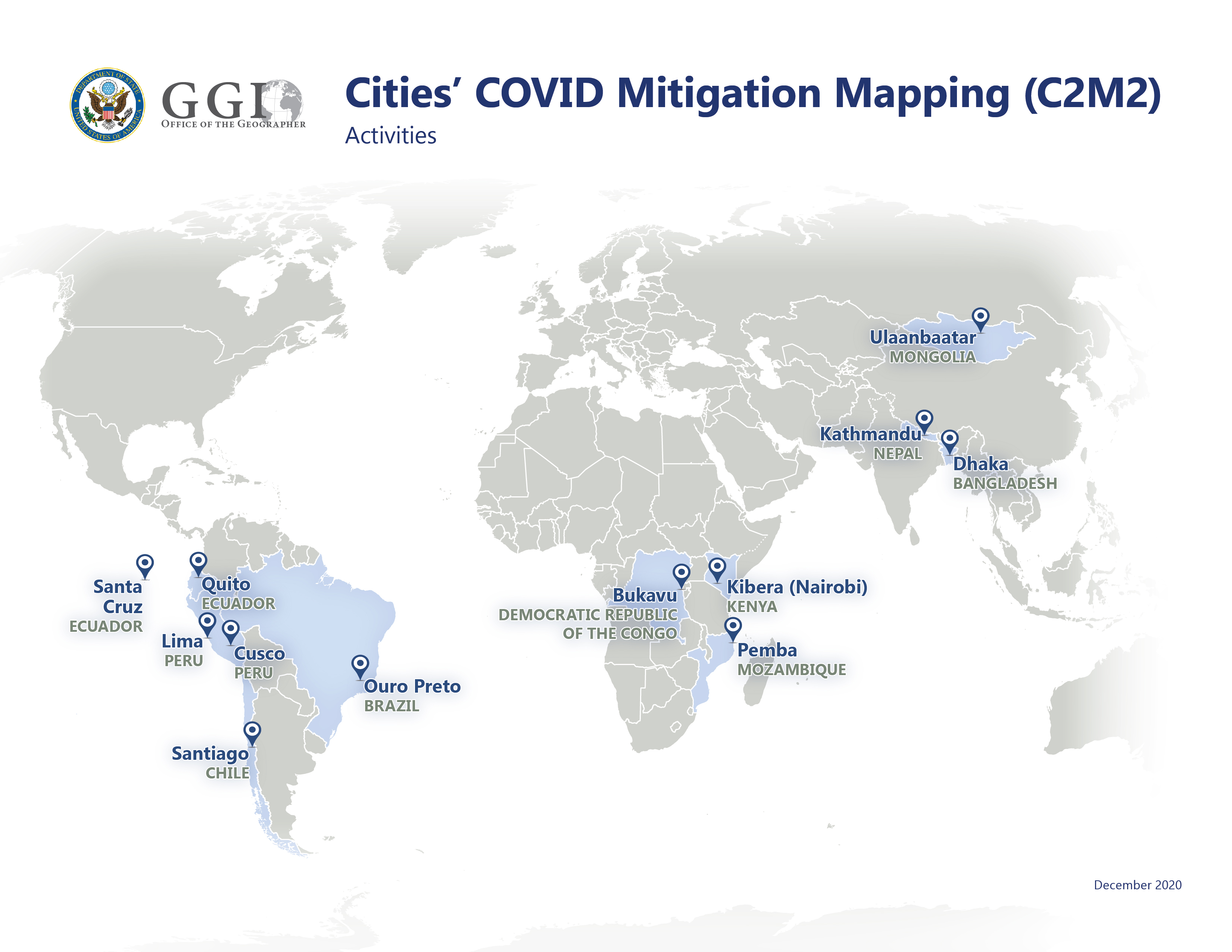
C2M2 Launch Webinar: Defining the Geospatial Characteristics of COVID-19 Second-Order Impacts
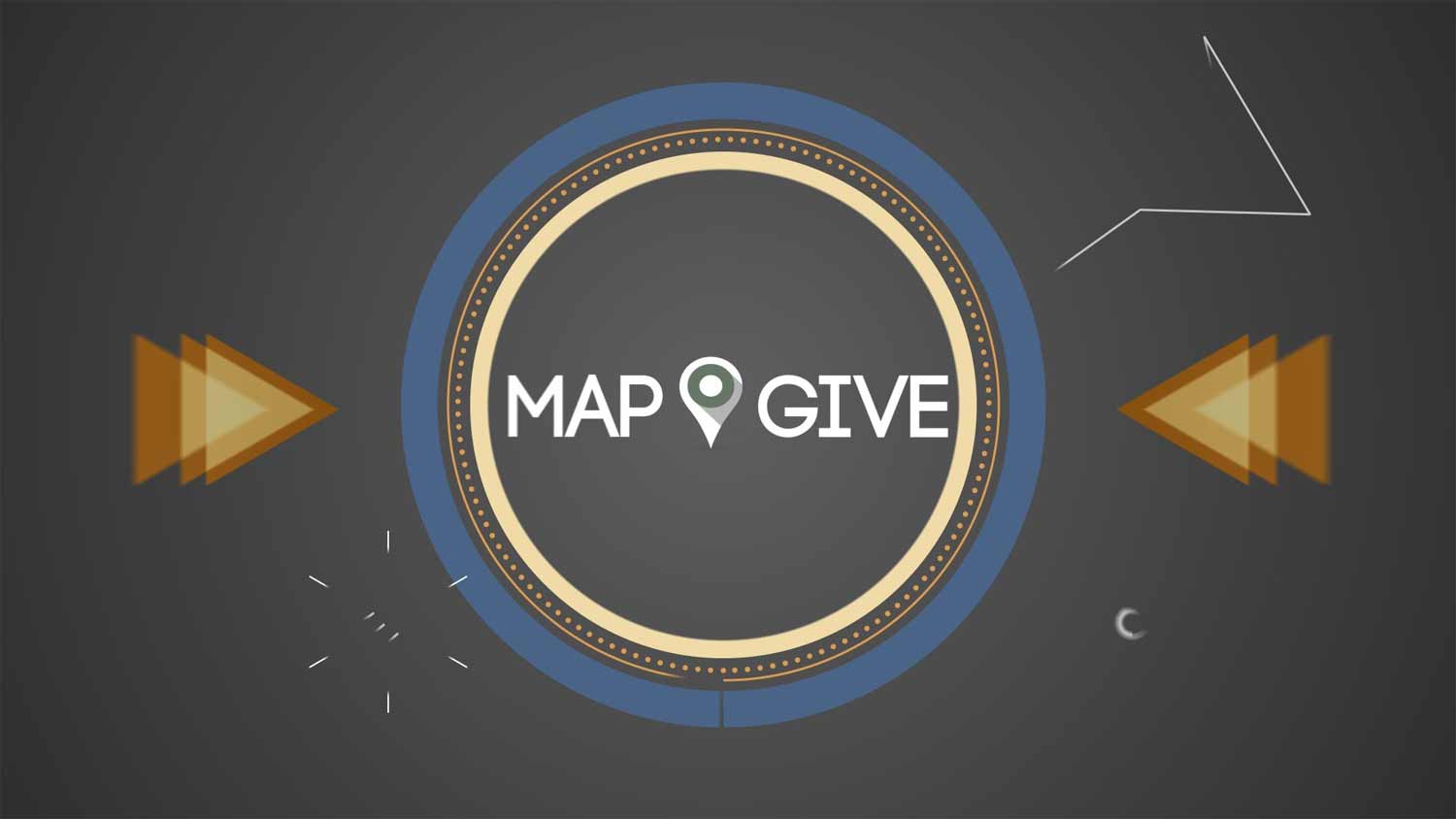
Cities' COVID Mitigation Mapping (C2M2) team meets for the program's launch webinar, featuring presentations on the second order impacts of COVID-19 from the Africa, Asia, and Latin America Hubs, December 2020.
Africa Hub
The COVID-19 impact on African countries has followed a gradual trend as opposed to the rapid surges occurring elsewhere. Given this context, Africa is an important region to examine and understand how countries have prepared themselves to manage the second order impacts of the pandemic.
The Africa Hub focuses on three cities across the continent: 1) Bukavu, Democratic Republic of Congo; 2) Nairobi, Kenya; and 3) Pemba, Mozambique. These projects address second order impacts related to access to social services, such as education, water, and health. Additionally, the Africa Hub will promote technical exchanges with partners in Abidjan, Ivory Coast; Accra, Ghana, and Conakry, Guinea to share lessons learned and best practices..
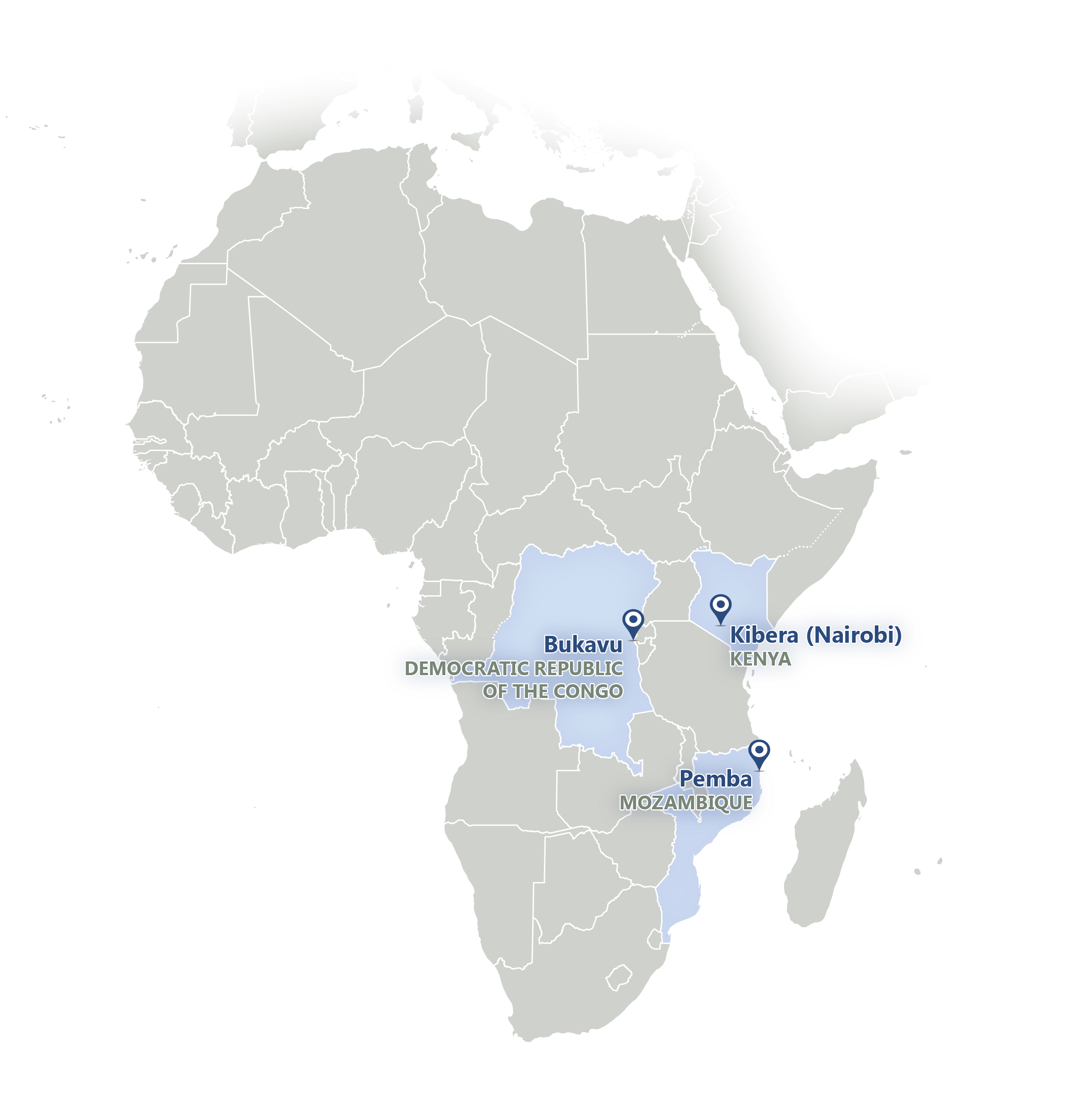
Asia Hub
Latin America Hub
Latin America has experienced critical economic challenges due to the pandemic. The Latin America Hub focuses on the spatial analysis and visualization of the emergent properties of poverty in the form of migration and the collapse of the tourism industry in different cities.
Specifically, projects will be undertaken in Quito, Ecuador; Santiago, Chile; and Lima, Peru to track migration and mobility of vulnerable populations and their access to services and resources. A comparative study will be undertaken to examine the collapse of the tourism industry in Santa Cruz, Galapagos, Ecuador; Cuzco, Peru; and Ouro Preto, Brazil. The hub will incorporate the results of these studies as they create models and other decision making tools for use by stakeholders in the region to mitigate COVID second order impacts.
